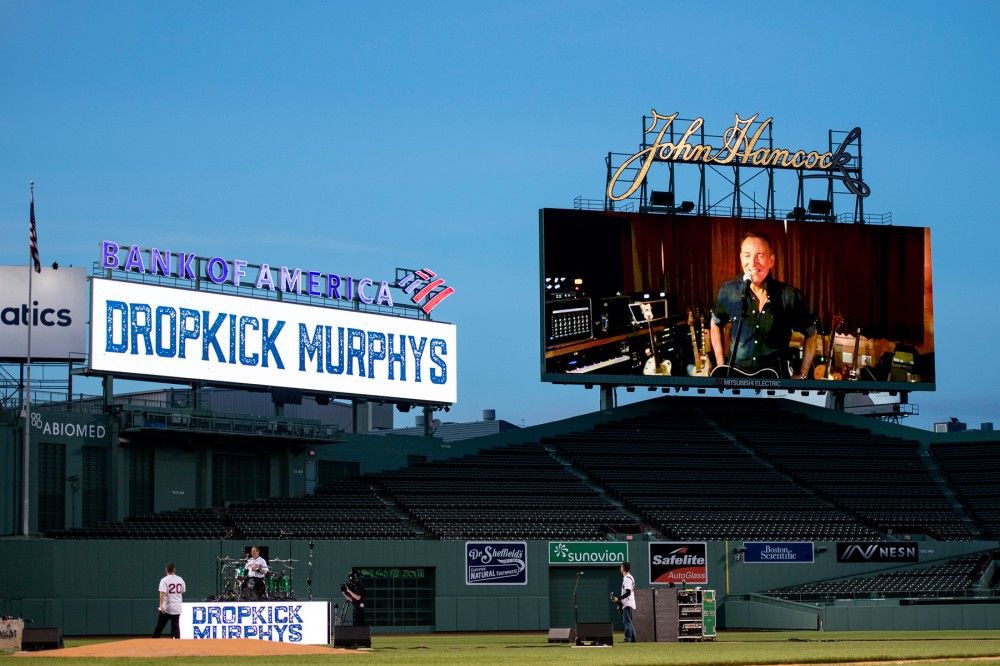
'The Culling Has Begun': Inside the iHeartMedia Layoffs
The largest conglomerate in the country, , initiated a round of mass layoffs this week, cutting enough people that one former on-air host described Tuesday as “one of the worst days in on-air radio history.” The layoffs were concentrated in small and medium markets, where staffs had already been reduced, striking another major blow to local radio.
Some employees began to suspect that cuts were coming last week. “There was a very urgent, emergency meeting called in New York City for market presidents and higher level local management,” says one former iHeartMedia employee who spoke on the condition of anonymity so as not to jeopardize a severance package. (Many declined to comment, citing the same reason.) “We heard a lot of different rumors, including talk about automating certain markets depending on the revenue they generated].”
For other iHeartMedia employees, the first sign of trouble came early Tuesday morning, when the company sent employees an email announcing a “new organizational structure.” The memo, obtained by Rolling Stone, seemed plucked partly from a corporate culture parody like Office Space. It opened with chest-puffing (“we are the #1 audio company in America”) and then slathered on numbing layers of business jargon (new institutions include “the Integrated Revenue Strategies Group” and “Excellence Centers”).
“Our people are our company’s most important asset,” iHeartMedia continued, before announcing that a number of those crucial assets were about to be cut, and inventing a new euphemism for layoffs in the process: “There will be some employee dislocation — some by geography and some by function — which is the unfortunate price we pay to modernize the company.”
Not long after the email went out, “people like myself started to get calls up to offices, and they were told they were being let go,” says the former host. “I’ve heard there are as many as 850 people without jobs today from iHeartMedia.” “I heard there are going to be more cuts] coming all week,” adds the other former employee. “The total number] is definitely in the hundreds.” He suspects it’s “the biggest reduction in force since the one they did in 2009 when iHeartMedia, then known as Clear Channel, laid off more than 2,000 employees].” Jerry Del Colliano, a veteran of the airwaves and professor in the Program at NYU Steinhardt who writes frequently about the troubles of radio, believes the number of layoffs will top 1,000.
“The culling has begun,” wrote one member of a Facebook group for people in radio.
iHeartMedia, which controls more than 800 radio stations and paid its CEO more than $14 million in 2017, declined to comment on the specific number of layoffs. In a statement that echoed its email to employees, the company noted that “during a transition like this, it’s reasonable to expect that there will be some shifts in jobs — some by location and some by function — but the number is relatively small given our overall employee base of 12,500.” “That said,” the statement continued, “we recognize that the loss of any job is significant; we take that responsibility seriously and have been thoughtful in the process.”
The majority of the cuts was inflicted on smaller markets — “size 30 and under,” according to Del Colliano. (In radio terms, markets are ranked by population; the size 30 market at the moment is Las Vegas, where the population is over 600,000.) iHeartMedia’s company-wide email proclaimed that “our company is built on the strength of broadcast radio — the markets in which we operate and the connection of our stations to the communities they serve.” But that connection may be nonexistent after Tuesday, according to several former iHeartMedia employees.
“Any smaller to medium market in the country lost, in all likelihood, most, if not all, of their on-air staff,” the former on-air personality says. “As far as the music stations go, there’s not a single local talent left]. I heard they’re gonna go with their national music logs across the board.” “I think the majority of these stations will be centrally programmed,” agrees the other former employee.
Daryl Ledyard worked for over a decade at WBBS, a country outlet which he says was Number One in the Syracuse area year after year for two decades. “To take all the local DJs off the radio in the Number One station, that says a lot,” Ledyard notes. “iHeartMedia is] very much convinced that the local aspect of radio is no longer important.”
In a statement, iHeartMedia said “we will continue to serve every local community in which we operate just as we always have.”
iHeartMedia was able to wipe away much of its local presence thanks to a recent decision made by the Federal Communications Commission. In 2017, the FCC succeeded in getting rid of “the main studio rule,” meaning that stations were no longer required to maintain a studio or any staff near the location of their broadcast license. Previously, to get a broadcast license in Sheboygan, Wisconsin, there would have to be a manned studio in town. Now, everything going out over those airwaves could be made in New York City and beamed in from afar. “It’s a lot easier to get rid of people if you don’t have to have any physical location where the public can come in and figure out what’s happening at your station,” says Jessica González, co-CEO for Free Press, a media watchdog group.
That may be part of why few in radio were surprised by the cuts to local talent. “I’ve seen the writing on the wall for a long time,” Ledyard says. “I’ve seen this coming,” agrees DJ Sab, who lost his radio role in Cincinnati. “Every couple years with iHeart or Clear Channel, there were cuts — cutting DJs, adding more syndication.”
“It’s so clear that deregulation has resulted in these big guys like iHeart running as lean as possible,” González says. “Radio still touches so many lives: It’s free, and it’s particularly important to low-income communities, communities of color, who are less likely to be on the internet, so their opportunities to access news and information are much more limited. We’re the ones that have to pay.”
Now that a single Spotify playlist might command more than 25 million followers, giving it the power to create a global hit before lunchtime, the concept of a local radio station intent on serving a local community seems increasingly quaint. “We’ve gotten so far from local owners that radio is almost unrecognizable now,” said Karen Slade, vice president and general manager of the independently owned KJLH in Los Angeles, in a 2019 interview. “It’s dominated by massive corporate structures, and the communities that we need to service get lost in the shuffle between the giants.”
Rampant consolidation “inherently homogenizes viewpoints — and music played — across the country,” added Rachel Stilwell, a music attorney who was part of a recent coalition that aimed to prevent the FCC from doing away with local ownership caps. “But it also means that there are fewer local DJs talking about local things that matter deeply to their own communities.”
With iHeartMedia taking this step to further hollow out its local presence, it’s easy to imagine that other big radio chains like Cumulus, Entercom, or Townsquare Media will do the same. “This is the largest radio group,” Del Colliano notes. “When they do something, guess what? Others will say, ‘Hey, we can’t operate in this world with a program director.’”
In fact, iHeartMedia’s move gives other radio chains cover if they want to pursue the same strategy. “No matter who does it next, iHeart was the bad guy first,” the former employee says. “So it doesn’t matter who does it next — they won’t be as bad as iHeart, because it won’t be unprecedented.”
The former on-air host acknowledges that local radio was already greatly reduced from its heyday. “Program directors at almost every company barely choose the music anymore,” he says. “It’s not ’cause they don’t want to — they’re told not to. Their influence has gotten less and less. You’ve gotten to the point where there’s no such thing as a disc jockey. There’s no such thing as a music director.”
“On-air talent was supposed to be the one thing that iHeartMedia] offered that was unique,” he continues. “Now, we don’t do that either.”



